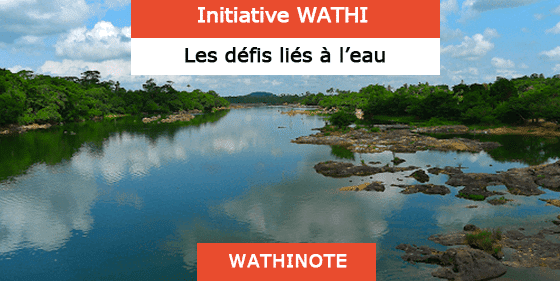

Authors: Justina Dugbazah, Barbara Glover, Bhekani Mbuli, Chifundo Kungade
Affiliated organization: African Union Development Agency
Site of publication: nepad.org
Type of publication: Article
Date of publication: June 2021
Clean drinking water, sanitation, and hygiene (WASH) are crucial to human health and well-being. Safe water and sanitation are not the only prerequisites to healthy living but contribute towards meaningful livelihoods and dignity. That is why the United Nation’s Sustainable Development Goal (UN’s SDG) Number 6 aspires for clean water and sanitation provisions across the globe, including the African continent. Furthermore, the AU’s Agenda 2063, Aspiration 1, Goal 2, aspires for inclusive growth and sustainable development that can warrant Africans a high standard of living and quality of life. As such, African countries aspire to provide their citizenry with the necessities of life such as clean water and sanitation, among others.
Poor sanitation leads to high-risk hygiene that can retain poor populations in a vicious cycle of poor health, environmental degradation, malnutrition, reduced productivity, and loss of income. It has been reported that approximately 115 people in Africa die every hour from waterborne diseases that are linked to poor sanitation, poor hygiene, and contaminated water.
In Africa, poverty is one of the great barriers to accessing clean water supply and proper sanitation. Other factors that exacerbate the limited access to clean water and sanitation crisis in Africa include continual natural disasters, growing pollution, wars, and limited access to water resources.
Outbreaks of waterborne diseases such as cholera, typhoid and dysentery are thus common with contaminated water bodies in Africa.
The African population has been rapidly growing over the past 25 years. However, access to sanitation and clean portable water has remained minimal for numerous African communities across the continent.
The challenges that most African countries face towards achieving adequate clean water supply and security include water storage, water usage monitoring, and water contamination. To address water contamination challenges, the African Union High Level Panel on Innovation and Emerging Technologies (APET) urges African countries to continue using and upscaling several conventional water treatment technologies such as filtration, flocculation, coagulation, ozonation, and chlorination.
Outbreaks of waterborne diseases such as cholera, typhoid and dysentery are thus common with contaminated water bodies in Africa
APET believes that African countries can leverage smart technologies to address their WASH challenges across the continent regarding water management of already existing clean water bodies. Thus, APET encourages African countries to consider utilising efficient water management system technologies that can improve strategic water usage monitoring systems and storage protocols. African countries should consider adopting smart technologies such as the internet of things empowered by blockchain and artificial intelligence technologies to enable smart water management systems.
Smart water management systems can enable African governments, industries, and utilities across the continent to integrate digital technologies with traditional technologies to monitor water quality, water quantity, efficient irrigation, leak detection, pressure and flow, ecosystems, floods, droughts, and much more.
Furthermore, to address sanitation challenges, African countries can consider bio-digestion technologies suitable for water-scarce environments.
Smartphone platforms can also enable sanitation notification messages and dissemination of information for local communities.
APET is also encouraging countries to consider better water harvesting technologies that can increase water supply and security. Therefore, indigenous water harvesting technologies and management practices can be adopted by African countries to address water availability for water-scarce regions.
Furthermore, rainwater-harvesting practices such as constructed ponds allow runoff water to percolate sand reservoirs or artificial groundwater recharge, among other techniques.
African countries should consider adopting smart technologies such as the internet of things empowered by blockchain and artificial intelligence technologies to enable smart water management systems
Underground water storage networks can substantially reduce water evaporation and substantially improve water security for numerous water-scarce communities.
Finally, for Africa to achieve water security, APET encourages African countries to continue addressing sanitation and water shortage challenges by leveraging smart technologies. Thus, African countries can achieve universal access to adequate and sustainable water supply, sanitation, and hygiene solutions that can eliminate widespread open defecation and limited water sources. The adoption and adaptation of smart technologies can effectively address Africa’s WASH challenges. In this way, African countries can accomplish the aspirations and goals of the UN’s SDGs and AU’s Agenda 2063: The Africa We Want.
Les Wathinotes sont soit des résumés de publications sélectionnées par WATHI, conformes aux résumés originaux, soit des versions modifiées des résumés originaux, soit des extraits choisis par WATHI compte tenu de leur pertinence par rapport au thème du Débat. Lorsque les publications et leurs résumés ne sont disponibles qu’en français ou en anglais, WATHI se charge de la traduction des extraits choisis dans l’autre langue. Toutes les Wathinotes renvoient aux publications originales et intégrales qui ne sont pas hébergées par le site de WATHI, et sont destinées à promouvoir la lecture de ces documents, fruit du travail de recherche d’universitaires et d’experts.
The Wathinotes are either original abstracts of publications selected by WATHI, modified original summaries or publication quotes selected for their relevance for the theme of the Debate. When publications and abstracts are only available either in French or in English, the translation is done by WATHI. All the Wathinotes link to the original and integral publications that are not hosted on the WATHI website. WATHI participates to the promotion of these documents that have been written by university professors and experts.
